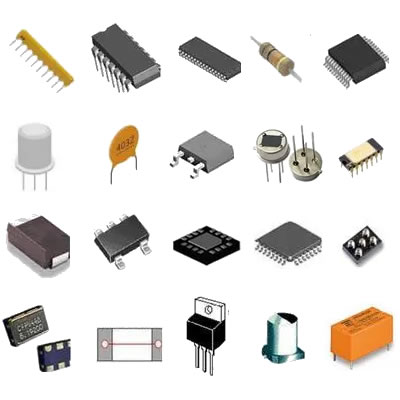An Article to Help You Understand What a Car Resistor Is
I. Introduction
When you think about the intricate systems that make up a car, you might picture engines, transmissions, and wheels. However, one of the unsung heroes of automotive technology is the car resistor. A car resistor is a crucial component in the electrical systems of vehicles, playing a vital role in regulating current and voltage. Understanding what a car resistor is and how it functions can help you appreciate the complexity of automotive technology and the importance of maintaining these components for optimal vehicle performance. This article aims to demystify car resistors, exploring their types, applications, and significance in modern vehicles.
II. Understanding Resistors
A. Basic Electrical Principles
To grasp the role of resistors in cars, it’s essential to understand some basic electrical principles. At the heart of electrical engineering is Ohm's Law, which states that the current (I) flowing through a conductor between two points is directly proportional to the voltage (V) across the two points and inversely proportional to the resistance (R) of the conductor. This relationship is expressed in the formula:
\[ I = \frac{V}{R} \]
Resistors are components that limit the flow of electric current in a circuit, allowing for the safe and efficient operation of various electrical devices.
B. Types of Resistors
Resistors come in various types, each serving different purposes:
1. **Fixed Resistors**: These resistors have a constant resistance value and are commonly used in circuits where a specific resistance is required.
2. **Variable Resistors (Potentiometers)**: These allow for adjustable resistance, making them useful in applications like volume controls in audio systems.
3. **Specialty Resistors**: These include thermistors, which change resistance with temperature, and photoresistors, which change resistance based on light exposure. Both types are often used in automotive sensors.
III. The Role of Resistors in Automotive Applications
A. Overview of Automotive Electrical Systems
Modern vehicles are equipped with complex electrical systems that control everything from engine performance to entertainment features. Resistors play a pivotal role in these systems, ensuring that electrical components receive the correct voltage and current.
B. Common Uses of Resistors in Cars
1. **Lighting Systems**: Resistors are used in headlight circuits to regulate the current, preventing bulbs from burning out due to excessive voltage.
2. **Engine Control Units (ECUs)**: Resistors help manage the signals sent to and from the ECU, ensuring that the engine operates efficiently.
3. **Sensors and Actuators**: Many sensors, such as temperature and pressure sensors, rely on resistors to provide accurate readings to the vehicle's computer systems.
4. **Audio Systems**: Resistors are used in car audio systems to control volume levels and manage signal strength.
C. Examples of Specific Resistors in Vehicles
1. **Resistor in the Blower Motor Circuit**: This resistor controls the speed of the blower motor in the heating and air conditioning system, allowing drivers to adjust airflow.
2. **Resistor in the Fuel Gauge**: The fuel gauge uses a resistor to measure the level of fuel in the tank, providing accurate readings to the driver.
IV. How Resistors Work in Cars
A. Current Regulation
One of the primary functions of resistors in automotive applications is to regulate current. By limiting the flow of electricity, resistors help protect sensitive components from damage caused by excessive current.
B. Voltage Division
Resistors can also create voltage dividers, which allow for the distribution of voltage across different components in a circuit. This is particularly important in systems where different components require different voltage levels to operate correctly.
C. Heat Dissipation and Its Importance
As resistors limit current, they generate heat. Proper heat dissipation is crucial to prevent overheating, which can lead to component failure. Many automotive resistors are designed with heat sinks or are placed in areas with good airflow to manage this heat.
D. Impact on Performance and Efficiency
The efficiency of a vehicle's electrical system can significantly impact overall performance. Resistors help ensure that components operate within their optimal ranges, contributing to better fuel efficiency and reduced emissions.
V. Diagnosing Resistor Issues in Vehicles
A. Signs of a Faulty Resistor
Identifying issues with resistors can prevent more significant problems down the line. Common signs of a faulty resistor include:
1. **Electrical Malfunctions**: If certain electrical components are not functioning correctly, it may indicate a resistor issue.
2. **Overheating**: Excessive heat around a resistor can signal that it is failing or overloaded.
3. **Warning Lights on the Dashboard**: Many modern vehicles have diagnostic systems that will alert drivers to electrical issues, including problems with resistors.
B. Tools and Methods for Testing Resistors
1. **Multimeter Usage**: A multimeter can measure resistance, voltage, and current, making it an essential tool for diagnosing resistor issues.
2. **Visual Inspection**: Checking for physical damage, such as burns or discoloration, can help identify faulty resistors.
C. Common Repairs and Replacements
If a resistor is found to be faulty, it may need to be replaced. This process typically involves disconnecting the battery, removing the faulty resistor, and installing a new one. In some cases, it may be necessary to consult a professional mechanic, especially for complex electrical systems.
VI. The Future of Resistors in Automotive Technology
A. Advancements in Resistor Technology
As automotive technology evolves, so do resistors. Innovations such as smart resistors, which can adjust their resistance based on real-time data, are becoming more common. These advancements enhance the efficiency and performance of electrical systems.
B. The Role of Resistors in Electric and Hybrid Vehicles
In electric and hybrid vehicles, resistors play a crucial role in managing battery systems and electric motors. They help regulate power distribution, ensuring that these vehicles operate efficiently and effectively.
C. Environmental Considerations and Sustainability
As the automotive industry moves towards more sustainable practices, the development of eco-friendly resistors and materials is becoming increasingly important. This shift not only benefits the environment but also enhances the overall efficiency of vehicles.
VII. Conclusion
In summary, car resistors are essential components that play a significant role in the functionality and efficiency of automotive electrical systems. From regulating current to ensuring the proper operation of various components, resistors are integral to modern vehicles. Understanding their importance can help car owners appreciate the complexity of their vehicles and the need for regular maintenance. As automotive technology continues to evolve, the role of resistors will undoubtedly adapt, paving the way for more efficient and sustainable vehicles. For those interested in further learning, exploring automotive electrical systems and their components can provide valuable insights into the fascinating world of car technology.
VIII. References
- Suggested readings and resources for further understanding:
- "Automotive Electrical and Electronic Systems" by James D. Halderman
- "Understanding Automotive Electronics" by William B. Ribbens
- Links to automotive electrical system guides and tutorials:
- [How Car Electrical Systems Work](https://www.example.com)
- [Automotive Resistor Basics](https://www.example.com)
This comprehensive overview of car resistors highlights their critical role in automotive technology, providing readers with a deeper understanding of how these components contribute to vehicle performance and safety.





